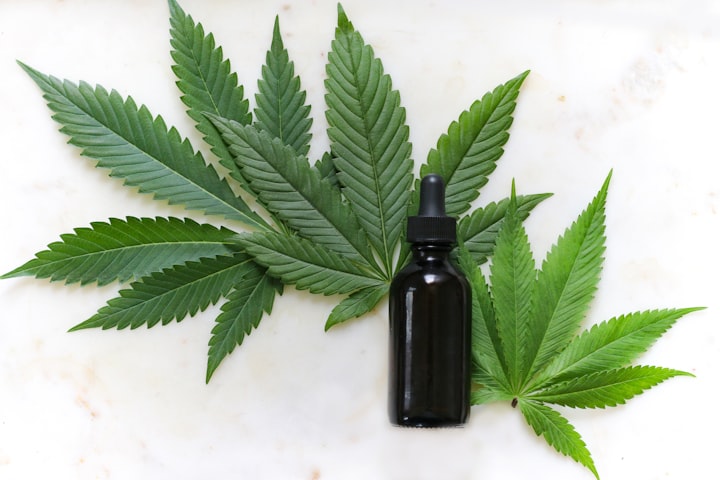Herbal Healing: Cooling Herbs for a World On Fire
For North America's Hottest Recorded Week June 2021

There are many different reasons why our bodies heat up beyond our typical baseline temperature. Fevers, hot flashes, alcohol consumption, infections, excessive heat. I am grateful to know that there are easy to find and consume herbal allies that can help us relieve the heat in our bodies, allow us to sweat, and in general, cool off. In this article I'll explore a few commonly available herbs that support temperature regulation in the body and the best herb or sometimes formula for a specific issue.

Peppermint: Medicinally, mint can be used to relax your peripheral blood vessels. Your peripheral blood vessels are the part of your circulatory system that directs blood toward or away from your skin. When your peripheral blood vessels are dilated, your body is trying to cool your blood down by running it through your largest and most exposed organ. When your blood vessels are contracted, your body is trying it's hardest to retain heat in the core of your body. Peppermint's ability to relax your peripheral blood vessels helps to direct your body to cool off. Peppermint can be drunk as a tea-hot or cold for this very purpose. If you find yourself in any one of our hottest cities, keep a pitcher of iced peppermint tea in your fridge to drink throughout the day. Peppermint is also cooling topically, putting a few drops of peppermint essential oil in lotion to cool the surface of your skin is an easy way to get some relief from the heat. Peppermint essential oil can also be used for minor pain relief for sprains, bruises, strains and headaches due to it's 'icy hot' feeling on the skin. Pro tip: if you ever get peppermint essential oil in your eyes, pour some olive oil across your fingertips and wipe your eyes with the olive oil. The larger molecule of the olive oil will pull the smaller molecule of the essential oil out of your eye. You can do this as well to dilute essential oils on the skin. Uses: fever, hot flash, mild to moderate overheating, digestive upset, nausea, pain, or just plain enjoyment! (Great for fevers that are accompanied by digestive distress.)

Cayenne: It's wild to think that something hot will help to cool! Think about all the beautiful hot hot hot places in our world, now think about their food. Spicy foods have more than one benefit in a hot climate, but for this article we'll focus on how hot foods help cool you down. Cayenne pepper helps to improve circulation by preventing blood platelet aggregation. This means that it helps to ease the flow of blood in the body and prevents, in a way, the clumping of platelets that form clots. Allowing your blood to circulate better through your body allows it to cool off faster. Now, not everyone can handle the heat of cayenne. It can aggravate the digestive tract and the elimination tracts. If adding cayenne to smoothies, drinks or meals just isn't an option for you, there are cayenne supplements that you can try. I take Cool Cayenne by Solaray. Solaray combines cayenne with ginger, guar gum, vegetable fiber and annatto to give you the benefits of cayenne without the burn. I have a hard time overheating, and when I do get hotter than I like I take a couple of Cool Cayenne pills with a glass of water, and I find that I cool off in about 10-15 minutes. For a short time, I took a prescription that had a side effect that prevented me from sweating, the heat in my body would build and build and build leaving me looking like a cooked lobster! I discovered then that the only thing that helped me break a sweat (literally) was cayenne. Medicinally, cayenne is also used to help treat inflammation and pain both internally and topically. Although my experience with this is anecdotal, I have heard of folks snorting a small amount of cayenne to stop a nosebleed with success. Be advised, it burns, so don't be surprised if you try this home remedy. Uses: fever, hot flashes, mild to moderate overheating and pain.

Black Elderberry: Black Elderberry has enjoyed a huge boost in consumption over the last couple of years as an herb that supports the body during flu season. It's primary mechanism concerning virus is that it helps your immune system damage the tiny viral spikes which allow virus to penetrate your cellular membranes. That being said, we're talking about heat here and black elderberry is a widely available herbal ally to help relieve that heat and make you sweat. It doesn't matter how you take it, pill, tincture, syrup, gummy, it's going to help your body move heat. Both elderflower and black elderberry act as a diaphoretic in the body. Diaphoretics, quite simply, help you sweat. As a note, I would avoid elderflower and elderberry in situations where heat is accompanied by dehydration. For example, not a good ally while dealing with symptoms from stomach flu or food poisoning. For those of you who are 'hot sleepers' this is a fabulous herb. Taking elderberry before bed can help reduce overheating during the night, and the natural antioxidants in black elderberries support your body as you sleep aiding the systems that naturally detoxify the body. Uses: fever, hot flashes, mild to moderate overheating, and stimulation of the immune system.

Catnip: Most of us think of catnip as an herb for cats, but it's effective for human complaints as well. Catnip's primary action in the body is to relax the nerves as well as the muscular system. Specifically, it helps to relax spasms and cramping in the digestive tract. Catnip is a diaphoretic herb (an herb that helps you sweat) and drinking it as tea either iced or hot would be a perfect way to feel its effects. Because catnip is a gentle herb it is well tolerated by children, elders and people with sensitive systems. Uses: fever, hot flashes, mild to moderate overheating, digestive discomfort such as gas, bloating and spasm, hiccups.

Yarrow: You cannot talk about moving heat without talking about yarrow. This herb's ability to move heat and vital fluids makes it an exceptional and practical herb for a wide variety of first aid issues both internally and externally. Yarrow's actions in the body include (but are not limited to) opening the pores and relaxing the peripheral blood vessels-as noted previously, this improves circulation and allows the body to cool itself using the body's largest organ: the skin. For yarrow to support the reduction of heat in the body, the best way to consume it is as a hot tea. My child was experiencing a rolling fever of 103 for over 24 hours. I didn't want to interrupt the purpose of the fever, but I hated seeing my kid suffer through it. It became clear that ibuprofen and acetaminophen weren't helping to relieve the incredibly dry fever, so I turned to one of my most favorite herbs, yarrow. I pulled a few leaves from my garden and prepared a hot tea of the fresh herb. One cup and my kid's fever broke in buckets of sweat. I am always amazed by herbs and their ability to help and heal the body. Yarrow is also an excellent herb used topically to reduce swelling and the heat associated with injured tissues and tissue repair. As a compress, or topical application (salve, lotion, essential oil, massage oil) it can help move excess fluid away from injured tissue, including bruises either fresh or old. Although, I am of a mind that the body knows what it needs to do, initial swelling of an injury is your body reacting the way it needs to-sending teams of cells to defend and repair the tissue. Banishing those fluids away too early may result in a longer healing time. Herbs like yarrow and arnica may be best used 2-3 days into the injury when the body has had enough time to send its initial response to support the injured site. Even though yarrow helps with circulation, it also helps to stop bleeding. I have used the essential oil to stop nosebleeds and minor cuts. Uses: dry fever, inflammation, stagnant energy or fluids, swelling, water retention (in a tea, drunk cold), symptom relief for colds and flu.
While these are not the only herbs that support the reduction of heat in the body, they are some of the easiest to find either in your local grocery store, supplement store or right in your back yard. Happy healing, and stay cool!
*
It is important to note that I am not a doctor. My experiences with these herbs are my own and not an attempt to diagnose, treat or cure any ailment. Just because herbs are sold over the counter does not mean they are safe for you. It is important to talk to a physician or pharmacist before you experiment with herbs. I am not paid or reimbursed in any way to offer my opinions on herbal supplements. It is my great pleasure to be an herbal advocate and to share my experiences and knowledge with you. Some of my favorite go to herbalists and authors are (but not limited to): Brigitte Mars, Matthew Wood, Rosemary Gladstar, and Guido Masé.
About the Creator
Sarah Snider
I am a great lover of poetry, magic, mystery and science. I am passionate about sharing what I know about herbs and herbal medicine.
She/Her






Comments
There are no comments for this story
Be the first to respond and start the conversation.